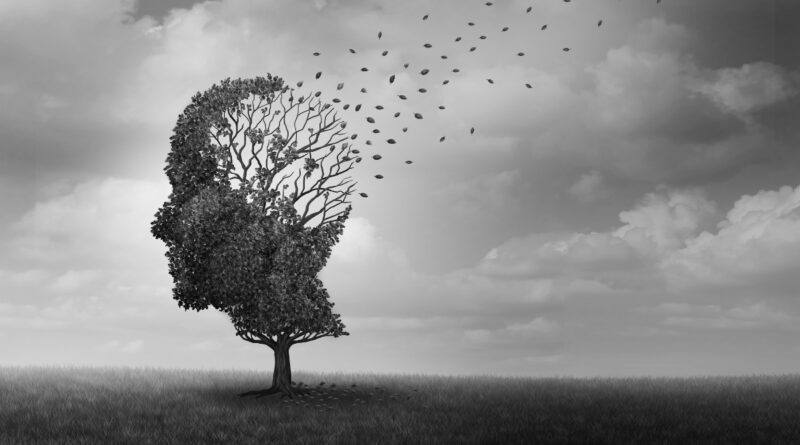Lonely Minds And Dementia: A Powerful Hidden Time Bomb
By The WFY Bureau Desk | Health & Wellness
In the world’s ever-busier networks of constant communication, something quietly lethal has been gaining ground—loneliness. This emotional state, once considered a passing sentiment, is now recognised as a significant public health concern. Particularly among older adults and the diaspora community who may live away from traditional family structures, loneliness has emerged not just as a social issue, but a biological and neurological threat—with dementia as one of its gravest consequences.
Understanding the Hidden Connection
Loneliness is more than simply being alone. It is a subjective, painful sense of disconnection—a feeling that one’s social needs are not being met by the quantity or quality of relationships. You may live in a bustling household, attend gatherings, or have a list of contacts on your smartphone, and still feel lonely. This persistent emotional state has far-reaching health implications, especially for brain health.
In a landmark analysis funded by the US National Institute on Aging and published in Nature Mental Health, findings from over 600,000 individuals across 21 global studies pointed to a startling conclusion: chronic loneliness is strongly associated with increased risk of dementia, including Alzheimer’s disease and other cognitive impairments. Researchers noted that the risk of developing dementia was nearly 1.5 times higher in individuals who consistently reported feelings of loneliness.
It is crucial to differentiate loneliness from social isolation. While isolation refers to the objective lack of social contact, loneliness is a subjective experience. It is possible to be surrounded by people yet still feel profoundly lonely—and it is this inner emotional erosion that appears to damage the brain over time.
The Brain Under Siege: How Loneliness Affects Cognition
Chronic loneliness induces a cascade of biological stress responses. The body produces higher levels of cortisol, the stress hormone, which over prolonged periods contributes to inflammation, vascular damage, and impaired immune response—all of which are known contributors to neurodegenerative conditions.
Loneliness also affects the hippocampus and prefrontal cortex—key brain regions involved in memory, decision-making, and learning. Neuroimaging studies have revealed that people experiencing chronic loneliness exhibit reduced grey matter volume in these areas. In turn, this accelerates cognitive decline and increases susceptibility to conditions like Alzheimer’s disease, vascular dementia, and mild cognitive impairment (MCI).
Furthermore, lonely individuals tend to sleep poorly, engage in less physical activity, and may neglect regular medical care. These lifestyle patterns further compound the risk factors associated with dementia.
According to the Alzheimer’s Society (UK), more than 900,000 people currently live with dementia in the UK alone, and the numbers are projected to rise to 1.6 million by 2040. Globally, the World Health Organization (WHO) reports over 55 million dementia patients as of 2023, with nearly 10 million new cases every year. Against this backdrop, addressing loneliness becomes not just a moral or emotional imperative—but a neuroprotective strategy.
Why Indian Diaspora Should Pay Attention
For members of the Indian diaspora—especially older adults in countries with fewer extended family networks—the risks can be compounded. Cultural dislocation, loss of traditional roles, language barriers, or even climate differences can lead to diminished social interactions and identity stress. While younger family members often adapt more rapidly, elders may feel isolated despite being surrounded by family.
Moreover, within many South Asian cultures, expressing feelings of sadness or emotional disconnection may be stigmatised, further preventing elders from seeking help. This silence becomes dangerous, especially when early signs of cognitive decline are overlooked or misattributed to natural ageing.
It is therefore critical for diaspora communities to create awareness around emotional well-being and to build support systems that are culturally sensitive, intergenerational, and inclusive.
Nine Holistic Ways to Reduce Loneliness and Protect Brain Health
Although loneliness can feel overwhelming, there are proven strategies—natural, holistic, and accessible—that can help rebuild meaningful connections and reduce dementia risk.
1. Acknowledge the Feeling Without Shame
The first step towards healing is admitting there is a problem. Loneliness is not a personal failure; it is a common human experience, especially in later life. Being honest with oneself and expressing these emotions to someone trustworthy is a powerful act of self-care.
2. Invest in Quality, Not Quantity, of Connections
A handful of emotionally supportive relationships can have more health benefits than dozens of superficial ones. Focus on nurturing close friendships or rebuilding ties with family members. Even regular, honest conversations with one or two confidants can significantly reduce feelings of loneliness.
3. Engage in Purposeful Group Activities
Shared-interest communities—whether it’s a yoga class, religious group, language course, or gardening club—offer both cognitive stimulation and emotional engagement. These environments facilitate natural conversations and the development of trust-based relationships.
In fact, studies show that participation in such social and recreational activities can delay the onset of cognitive decline by as much as 40%.
4. Bridge Generations Through Time and Stories
Engaging with people from different age groups, especially grandchildren or youth in the community, offers fresh energy and mutual benefit. In return, younger generations often gain wisdom and cultural continuity from elders. Indian diaspora families can explore shared storytelling, traditional cooking sessions, or heritage celebrations that unite generations meaningfully.
5. Adopt a Pet for Daily Connection
Animals, particularly dogs and cats, offer non-judgmental companionship and structure to daily life. A study in BMC Geriatrics found that pet ownership reduces loneliness scores among older adults and even improves blood pressure and cardiovascular outcomes.
6. Contribute to Others Through Volunteering
Helping others naturally brings fulfilment. Volunteering at local schools, libraries, or diaspora organisations provides a renewed sense of purpose. It also introduces individuals to wider networks of like-minded people, reducing loneliness while increasing cognitive activity.
7. Limit Social Media and Make It Meaningful
While digital tools can bridge geographical divides, passive scrolling often deepens feelings of isolation. Instead, opt for scheduled video calls, live cultural events, or online hobby groups. Active, intentional communication is the goal—not mindless consumption.
8. Keep the Mind Sharp and Curious
Learning a new skill—whether it’s playing a musical instrument, speaking a new language, or exploring art—stimulates the brain’s neuroplasticity. Puzzle-solving, journaling, or reading regularly can help maintain memory and executive function.
9. Reach Out to a Mental Health Professional
If feelings of loneliness persist or lead to symptoms like depression or anxiety, it is wise to seek help. Therapy provides structured tools to rebuild emotional strength, and counselling can help family members better understand and support the individual’s needs.
Government and Community Interventions
Governments around the world are beginning to recognise loneliness as a serious health issue. In the UK, a Minister for Loneliness was appointed in 2018—the first such post globally. Since then, government-backed programmes have promoted social prescribing, where individuals are “prescribed” group activities instead of medications alone.
India, too, is slowly awakening to the importance of geriatric emotional health. Various state governments and NGOs now offer helplines, support groups, and mobile counselling services for senior citizens. The diaspora can take inspiration and also contribute by setting up wellness cells within their local communities abroad.
Organisations like the Indian Diaspora Global (IDG) or cultural wings of embassies and consulates can also play a vital role by initiating inclusive events that encourage cross-generational participation, reducing both cultural and emotional distance.
Concluding Thoughts: Connection as Preventive Medicine
The link between loneliness and dementia is no longer speculative—it is now strongly backed by science. But more importantly, the solution does not lie in complex treatments. It lies in the timeless values of empathy, communication, and meaningful connection.
For the global Indian community—spread across continents but tied together by shared history and cultural warmth—the antidote to loneliness may simply be a phone call, a community gathering, or even an evening of storytelling under the stars.
Caring for the brain begins with caring for the heart. Let us not underestimate the healing power of connection. It may just be the most profound, and overlooked, form of preventive medicine.
Disclaimer: This article is intended for informational purposes only. It is not a substitute for professional medical advice, diagnosis, or treatment. Always seek the guidance of your physician or qualified health provider with any questions regarding a medical condition.




